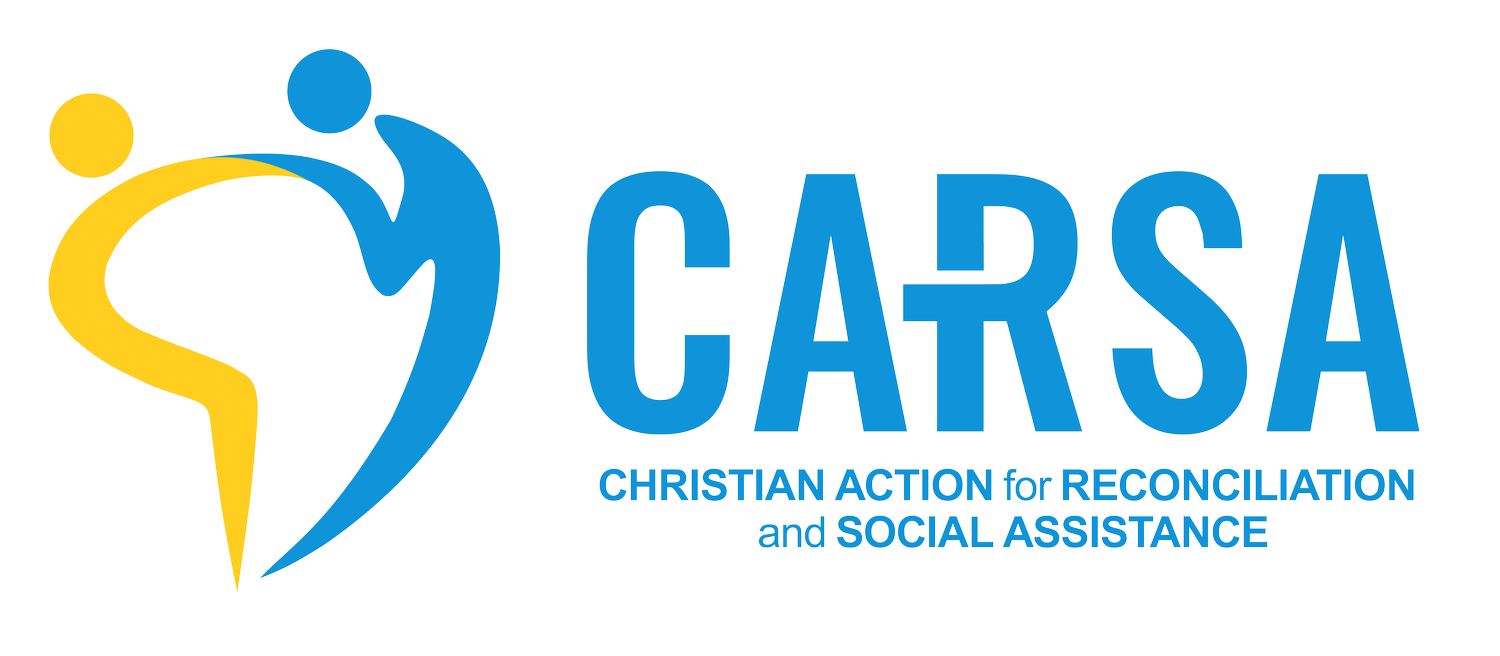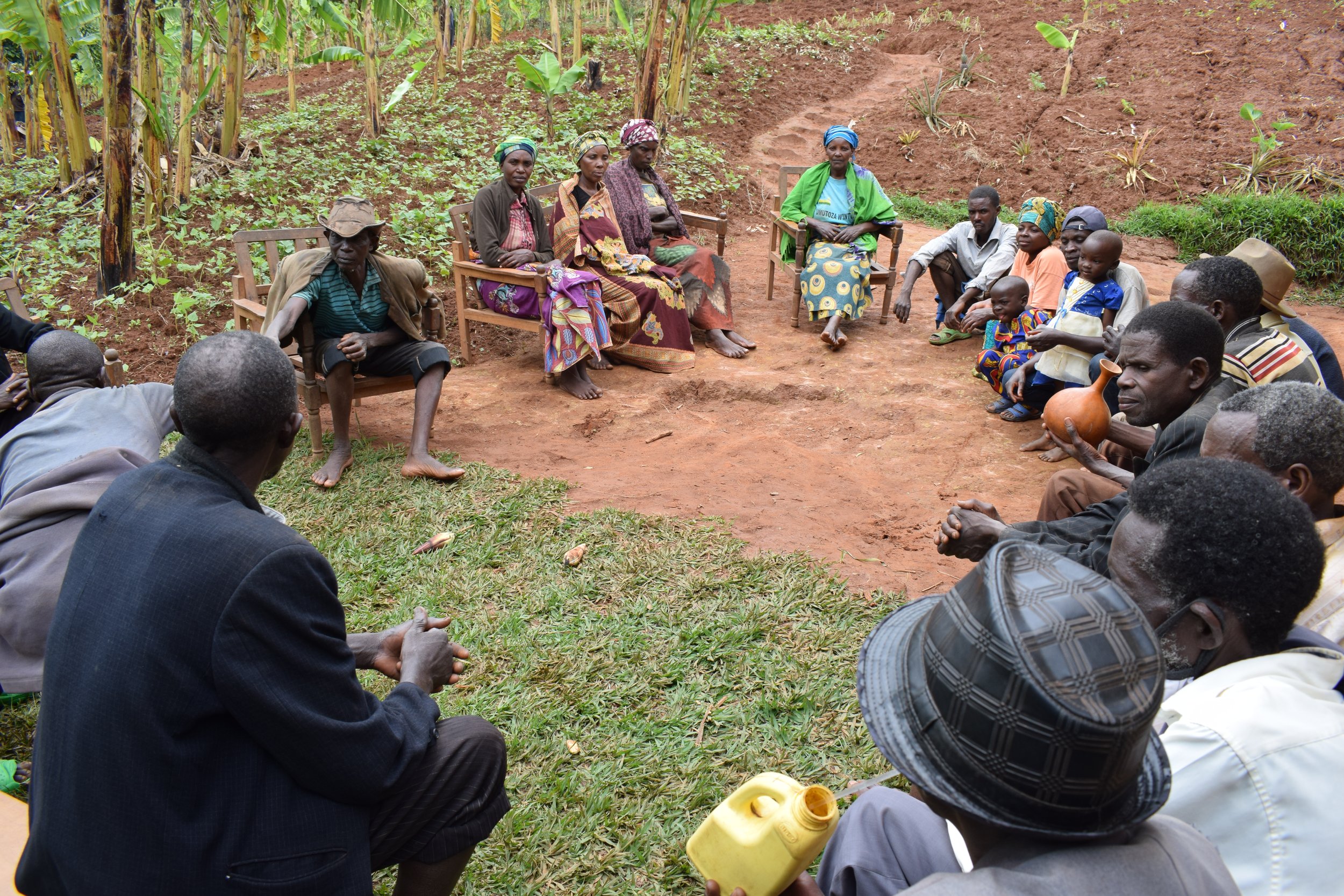
Trauma Healing and Reconciliation Program
The Trauma Recovery and Reconciliation program of CARSA marks the beginning of CARSA’s different
activities and is very near to our hearts. CARSA’s work is at its core to acknowledge the brokenness
of our context and mend it with the life-changing medicines of forgiveness belonging,
and gospel hope
-
Empower Workshop
These workshops have been running since CARSA’s inception and are still the first step in our trauma recovery ministry. Since 2017, we have used a curriculum called “Empower.” The 13-session curriculum falls under two parts. The first part is emotional strength, and the second is forgiveness. The course begins by helping participants to identify “heart wounds” by learning about how their body reacts to stress and trauma. During the section on emotional strength, participants will be taught about the following topics: how to react to negative emotion or trauma in a non-inflammatory way that recognizes their personal agency, relaxing and creating healthy “happy chemicals” (i.e. dopamine) that balance stress chemical releases, managing strong emotions (healthy coping skills), identifying truth, identifying some cultural or personal narratives that stray from the truth, how their thoughts react to stress/trauma, how to reflect on upsetting topics without damaging the mind, and how to take control of their thoughts. Over the course of 3-4 days, these topics will each be taught in a large group morning session and discussed in small groups of 10-15 after the lecture.
This program used to exist exclusively for unreconciled genocide survivor-perpetrator pairs. However, 30 years removed from the genocide, our trauma recovery workshops have expanded to all who need to be unshackled from the chains of generational poverty or trauma following 1994. Widening our target audience has enabled us to better pursue our vision of a society where peace, solidarity, and unity in diversity are valued and established.

-
Resilience Cell Groups(RCGs)
After the workshop, the participants are placed in RCGs of 20-30 people who meet regularly. Some of the oldest groups have been meeting for as many as 12 years. In cell groups, neighbors with Empower training continue practicing all the lessons discussed in the Empower workshop and supporting each other as they apply the challenging command to forgive as they have been forgiven and cast their cares on Christ. Group members become accountable to one another to pursue their goals
and continue their healing journeys. The RCG is also a place where members can honestly share about the struggles and failures they have experienced along their path of holistic transformation. They can expect that members will follow up with
them and work together to address their problems. Cell groups are foundational platforms for rebuilding the community and reestablishing trust. Why is that? This question strikes at the core of CARSA’s grassroots ministry
philosophy. The reason each cell group is built on the foundation of empowerment
training is that, by healing from the wounds and lies of trauma in the context of a trustworthy Christ-centered community, groups are forming micro-communities of
emotionally resilient individuals with hope for the future. From the very first day of the Empower workshop, participants are told that the education they receive
from CARSA is something that they are meant to share with their community. While learning about emotional fortitude and forgiveness at Empower and honing those skills in their RCG, CARSA beneficiaries are trained to be sustainable developers who make sustainable developers and take responsibility for facilitating holistic healing in their own cells. -
Cows for Peace
Cows for Peace is a project that organically grew out of our RCGs and is specifically for genocide survivor-perpetrator pairs who have reconciled through regular RCG involvement and want to take the next step of working together as neighbors again.
The identified pairs that have formed an agreement about how they will share the responsibilities of raising a cow and splitting its proceeds will receive a cow from
CARSA that will live at the survivor’s residence. When the first calf is born, it is given to the perpetrator's household, and any subsequent calf is given to another pair in their cell that is ready to take the same step. Slowly, the reconciliation of just two people addresses poverty, malnutrition, and relationships within a community. Former enemies are cooperating, rebuilding relationships, and reintegrating into the community — fulfilling the vision of a society established on peace, solidarity,
and unity in diversity
Our Approach
Fostering reconciliation through a 3-step process:
1: Reconciliation workshops
CARSA works with local government and church leaders to identify people who would most benefit from a 7-day workshop that focuses on trauma healing and reconciliation. For many participants, this is the first time they have experienced true forgiveness, either for their offender or for themselves.
2: Reinstating community
Interdependence is essential in Rwanda’s rural areas. The genocide destroyed communities, broke trust and shattered relationships, leaving vulnerable people without a safety net. After the workshop, survivors and their offenders are put into groups to meet regularly and support each other through caring for each other’s needs. This rebuilds the foundation of community for participants and reestablishes trust.
3: Ensuring Sustainability
Finally, the cow is given to the survivor-offender couple. It stays with the survivor’s family, but both share the responsibility of caring for it. This creates opportunities for the offender’s family to visit the survivor’s home regularly. Through the guidance of their cell group, the couple continues to rebuild their relationship as they care for the cow. The first calf that is born is given to the offender’s family.


